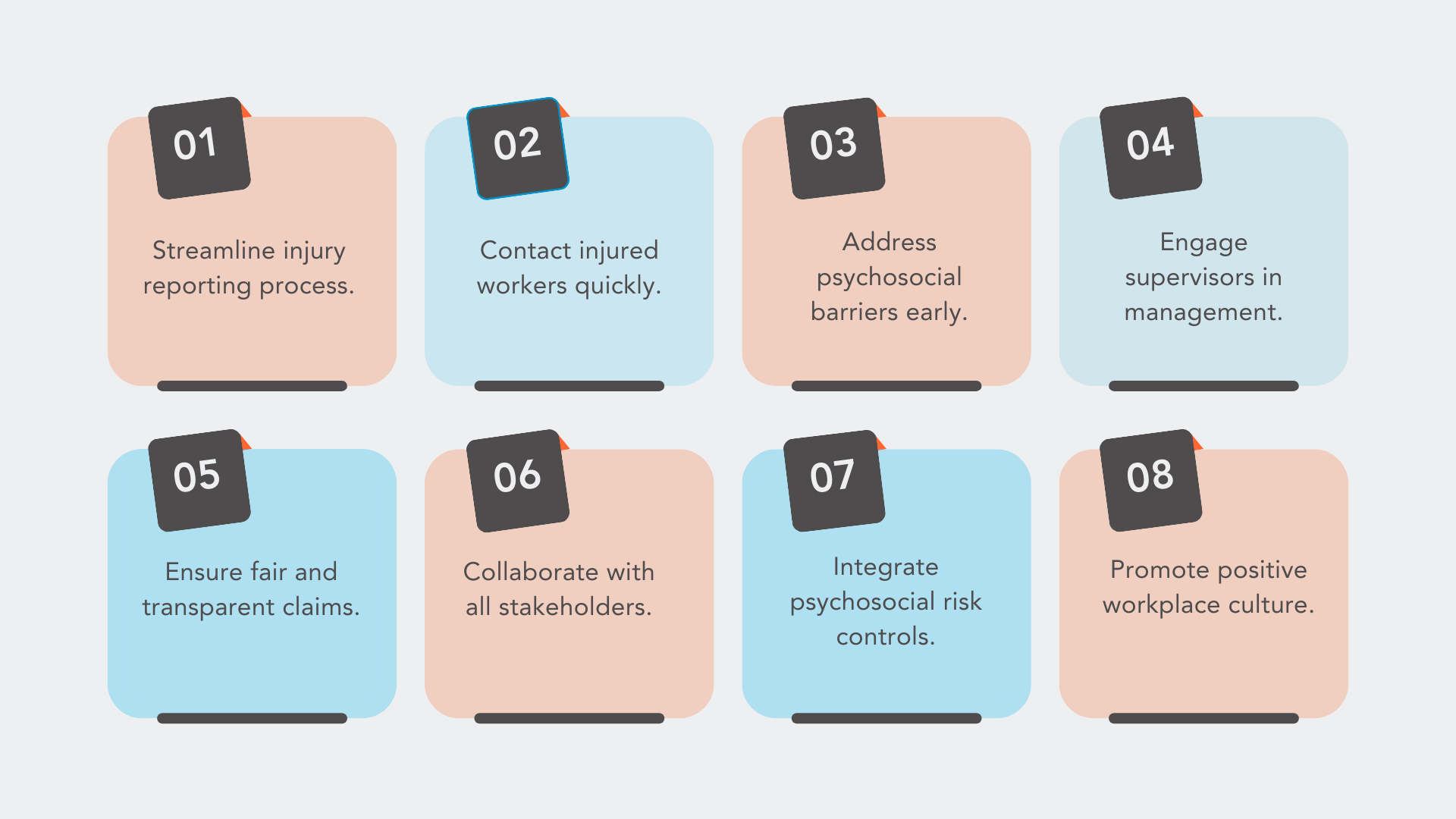Work-related injuries and psychosocial hazards significantly impact businesses, affecting productivity and profitability.
The "It Pays to Care" policy paper, developed by the Australasian Faculty of Occupational and Environmental Medicine, demonstrates that focusing on early support, effective injury management, and psychosocial risk prevention can improve return to work (RTW) outcomes, reduce costs, and create healthier work environments.
“Early, supportive action from employers following workplace injury leads to significantly better outcomes. The evidence shows that when employers respond positively and constructively to injury, return-to-work rates are around 40% higher for physical injuries and 50% higher for psychological claims. Simple actions like early contact, showing genuine care, and providing appropriate support make a real difference - both for worker recovery and the bottom line. It truly does pay to care”. Dr Mary Wyatt – It Pays to Care (IPTC)
While workers compensation insurance premiums typically range from 1-6% of payroll, poor workplace injury management practices and inadequate RTW support can escalate these costs. Work injuries and psychosocial hazards can also cost businesses through:
- Lost productivity and replacement costs
- Increased workload for supervisors and employees
- Absenteeism and presenteeism due to stress
- Higher turnover rates and reduced team cohesion.
Implementing “It Pay to Care” principles
Key strategies for businesses:

Benefits of better injury management and psychosocial hazard prevention
By embracing the It Pays to Care principles, businesses can create psychologically safe workplaces and deliver tangible benefits within the workplace, including:
- Increased productivity and lower costs
- Enhanced employee engagement and improved reputation
- Reduced mental health-related absences
- Increased workplace resilience
- Improved talent attraction and retention.
Tools and resources
Business leaders are encouraged to explore the "It Pays to Care" policy paper and apply its principles to improve injury management and psychosocial safety in their organisations.
Visit www.itpaystocare.org for best practice guides, training materials, and psychosocial risk management templates.
Article content source: www.itpaystocare.org
Mutual Benefits is a proud supporter of IPTC who are regular guest presenters for our Employer Training Program.
How can we support you
Mutual Benefits Program also provides support and resource tools to EML Group customers looking to improve their injury management practices including our Workplace risk and Wellbeing Tools, WHS Poster Library and specialist resources for RTW coordinators that includes some helpful videos to assist in understanding the role in implementing your organisation’s return to work plan and supporting a worker’s recovery and return to work.
Contact us mutualbenefits@eml.com.au or visit www.eml.com.au/mutualbenefits for more information.

